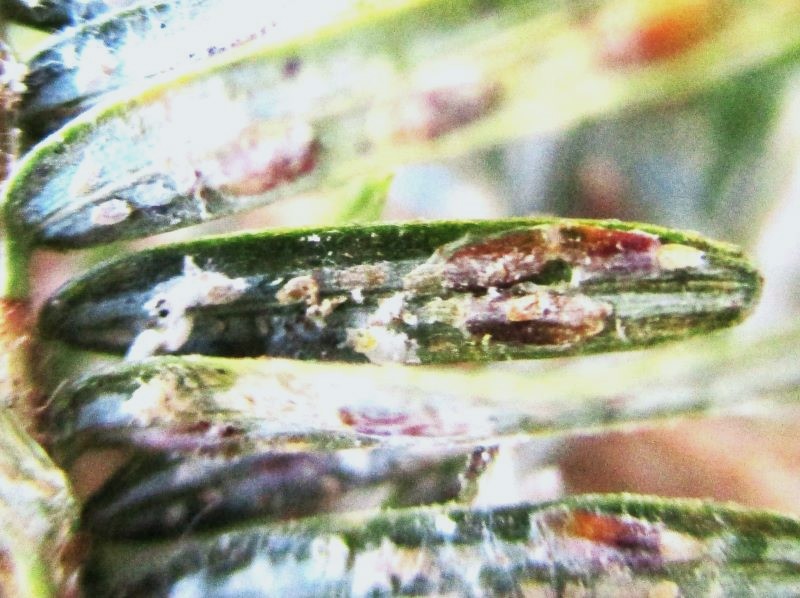Elongate Hemlock Scale (Chionaspis pinifoliae)
GDD Window (base 50): 360-700 (1st generation)
Overview:
- Overwinters as egg or as female carrying egg
- Females are oval, flat, and tan/translucent, males are whitish
- Females had a very long egg-laying period which extends throughout the summer with two overlapping generations
- Crawlers become noticeable in conjunction with new growth
- Puparium-like type of waxy cover extends under the body of the insect and over the top, making control difficult
- Causes yellow spots to appear on needles, foliage appears thin, needle drop, and tree death in severe situations
- Host plants: hemlock, spruce, Douglas fir, yew, true firs
Management:
Cultural Practices:
- Natural predators: brown lacewings, green lacewings, lady beetles, parasitic wasps
- Keep growing areas and equipment clean
- Prevent dusty conditions
- Reduce plant stress
- Dispose of heavily infested plants
Materials:
- Contact insecticides:
- Carbamates [1A]: carbaryl
- Pyrethroids [3A]: –thrins
- Organophosphates [1B]: acephate (translaminar), malathion
- Systemic insecticides:
- Neonicotinoids [4A]: dinotefuran, acetamiprid, thiamethoxam
- Considerations:
- Will harm non-target species
- Timing is essential in controlling armored scales (target crawler stage before waxy covering forms)
Biorationals:
- Insecticidal soaps and horticultural oils
- Neem oil
- Insect growth regulators:
- Pyriproxyfen [7A]
- Buprofezin [16]



Disclaimer – Materials do not cover all possible control scenarios and are intended for licensed professionals. Tradenames do not imply endorsement and are used as examples. You must strictly follow the label for each compound prior to use. Rutgers is not responsible form is used materials or damages thereof. The label is the law. Labels will provide detailed information on use and restrictions. Additionally, application intervals, compatibility, surfactant use, PHI, PPE, important and other key information is described in detail. Always discuss treatments with your local agents. Note: Neonicotinoids can only be legally applied in commercial agriculture settings by licensed applicators. Guidelines and recommendations made in this presentation are specific to the state of New Jersey.
